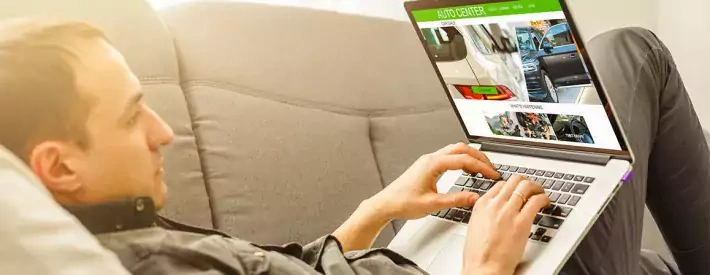Why online marketing is changing

The motor industry faces yet more disruption next year - and it’s not electrification or another health crisis – but changes to how you identify potential
Honing in on potential customers in the digital age has been made far easier thanks to cookies that help businesses identify people who may be looking to buy a vehicle. We’ve all seen the adverts first hand when we log on to our devices, directed to us because of our browsing history. But things are changing.
Google is ending the practice of easily identifying potential customers through their internet browsing activity from next year. Automotive content and Ecommerce firm Autovia believes the motor retail industry needs to wake up to the coming challenge.
"This is one of the biggest changes to hit the world of digital marketing for many years," said John Webb, Managing Director, Automotive Data, Demand Generation and Commercial Operations at Autovia.
Many marketing departments and dealer promotion businesses use cookies to help identify consumers who are in the market for a car, so that they can target them with advertising. But Google is changing the way it allows online personal tracking and ending the use of third-party cookies on its platforms.
That’s an enormous change as it’s one of the key tools the motor industry uses to provide potential buyers with offers and information.
"These changes will present real challenges, in particular for those businesses who do not enjoy the kind of scale that enables them to build new digital tools and methods to engage with customers. The fact is that the option of attracting highly engaged car buyers directly will be made more challenging by Google's decision," said Webb.
It’s a decision that comes at a time when online sales and enquiries have grown enormously, accelerated by the COVID-19 pandemic and could put smaller firms at a disadvantage.
Autovia, which has a team dedicated full-time to filling the gap that will be left by the move away from third party cookies, warns that many dealers and OEMs will find their ability to target individual internet users significantly impacted - and those who aren't investigating new strategies could find themselves left behind when the changes are implemented.
Webb said: "I know how tough this challenge is because we are already working flat out on it - and we have the luxury of a large expert team dedicated to nothing else. But the lack of discussion around this change in the automotive industry suggests that many could be caught out and see a reduction in their marketing leads.”
And it isn’t just Google implementing changes. Apple has also recently announced modifications to the way companies and brands can target individuals through apps on their devices, adding to the movement for more transparency in digital marketing and building the urgency for businesses to find new ways to engage with buyers beyond their own websites
In order for business to succeed online even as restrictions come into place, firms need to start thinking about workarounds now, according to Webb.
"Dealers should be asking their marketing partners and platforms how they plan to respond to the degradation of third-party cookies and what solutions they're putting in place to accommodate these changes. The key will be working with partners who have explicitly opted-in databases of in-market car buyers that they can target, rather than relying on the current 'follow-me' practices of re-targeting applied by many.
"There is little doubt that some manufacturers and biggest dealer groups will already be honing their future strategies to make the best of this new world, seeing the bonus of an opportunity to get ahead of less nimble competitors when the door closes on most third-party cookies.
"This aspect of the digital marketing landscape will only continue to become more challenging and those who have benefited from re-targeting third-party cookies must now start thinking about new ways of boosting the connections with their key audiences beyond their own websites," he said.




